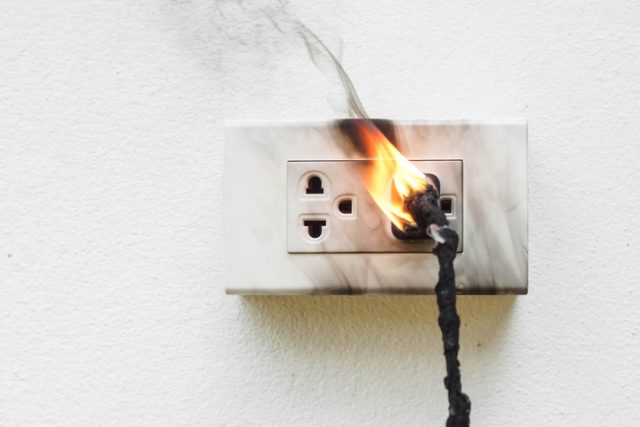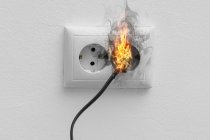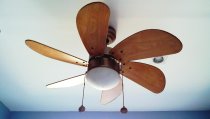What is a Short Circuit?

August 19, 2025
What is a Short Circuit?
If you have ever encountered an electrical issue, then chances are good that a short circuit was involved. Short circuits come up often in conversations about electrical problems, but many people do not know what a short circuit is or what to do about it. This short article brought to you by Neighborhood Electric will try to help. If you are left with questions or concerns, then call Neighborhood Electric to consult with a friendly representative. We are always happy to schedule a flexible appointment or emergency dispatch.
A Little About Electricity
Electricity is an extremely volatile element. There is no knowing where it will flow. Well, actually, there is a way to predict.
Electrical currents tend to take the path with least resistance. So, if the electricity is traveling on a circuit and the circuit is interrupted by, say, a fork in the socket, then electricity will jump traffic and flow in the new shortcut, or short circuit. Obviously, this interruption in the guided path of the electricity will have severe consequences for your electrical system.
In the fork-in-socket example, the fork becomes loaded with electricity and poses a serious threat of injury. However, not all short circuits are so risky. Short circuits come in two primary types: neutral wire short circuits and ground fault short circuits. The former is much more threatening than the latter.
Common Causes of Short Circuits
Obviously, we want to prevent short circuits, and understanding the cause of short circuits is the first step toward preventing them. We advise that you leave the task of investigating the cause of the short circuit to trained and equipped electricians. That said, here are some common culprits in short circuits:
- Faulty Insulation: Wires are insulated to protect them from touching, but natural decay, screw punctures, and rodent bites can damage the insulation. A hot wire making contact with a neutral wire can cause a dangerous short circuit.
- Loose Wires: Similarly, loose wires can result in a scenario where the hot wires touch neutral wires.
- Bad Appliance Wiring: There can be a short circuit within an appliance as well. This would disrupt your electrical system.
As you can guess, there are solutions to tackle these threats. However, we recommend that homeowners and business owners leave dangerous electrical work to trained electricians. Poor electrical work can expose you to electrocutions, electrical fires, legal liability, and even rejected insurance claims.
Finding the Short Circuit
How can you find where the short circuit is happening? The biggest clue is in the circuit breaker box. A short circuit should trip the circuit breaker assigned to that respective circuit.
Head over to your circuit breaker box and see if any of the circuit breakers have flipped to the OFF position. Keep it in the OFF position and check the appliances and sockets in the room. A damaged power plug is a strong indicator of a short circuit.
We do NOT recommend that you touch those sockets or power plugs. Call Neighborhood Electric to have a qualified electrician take a look.








